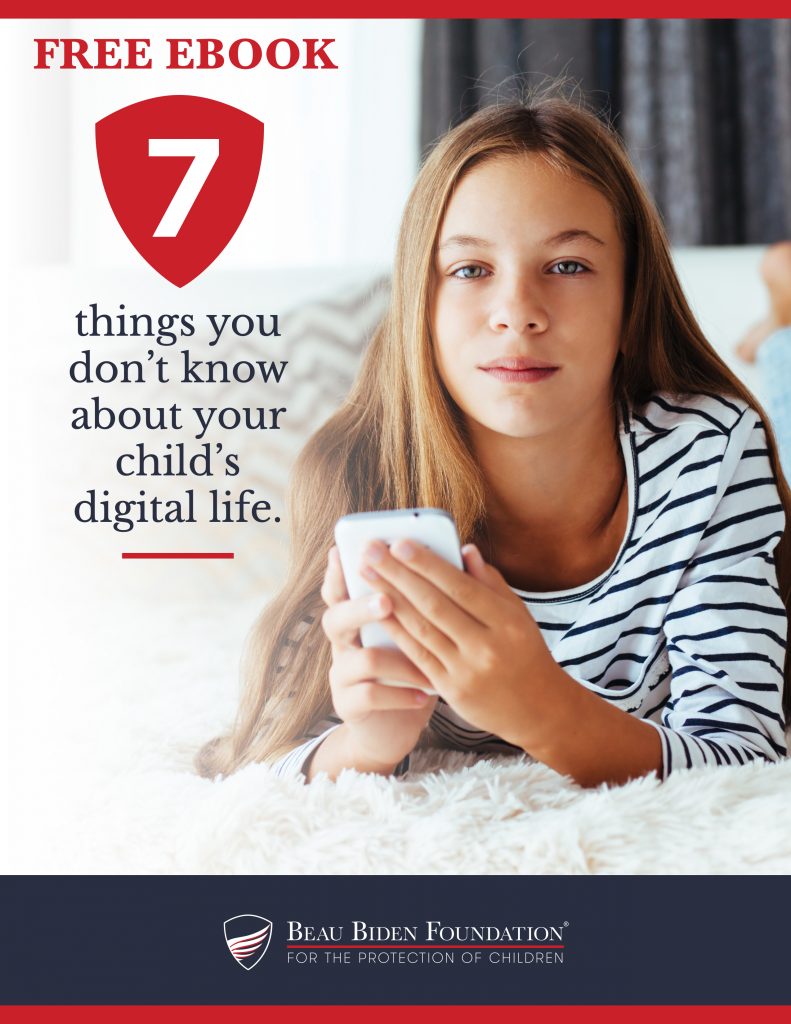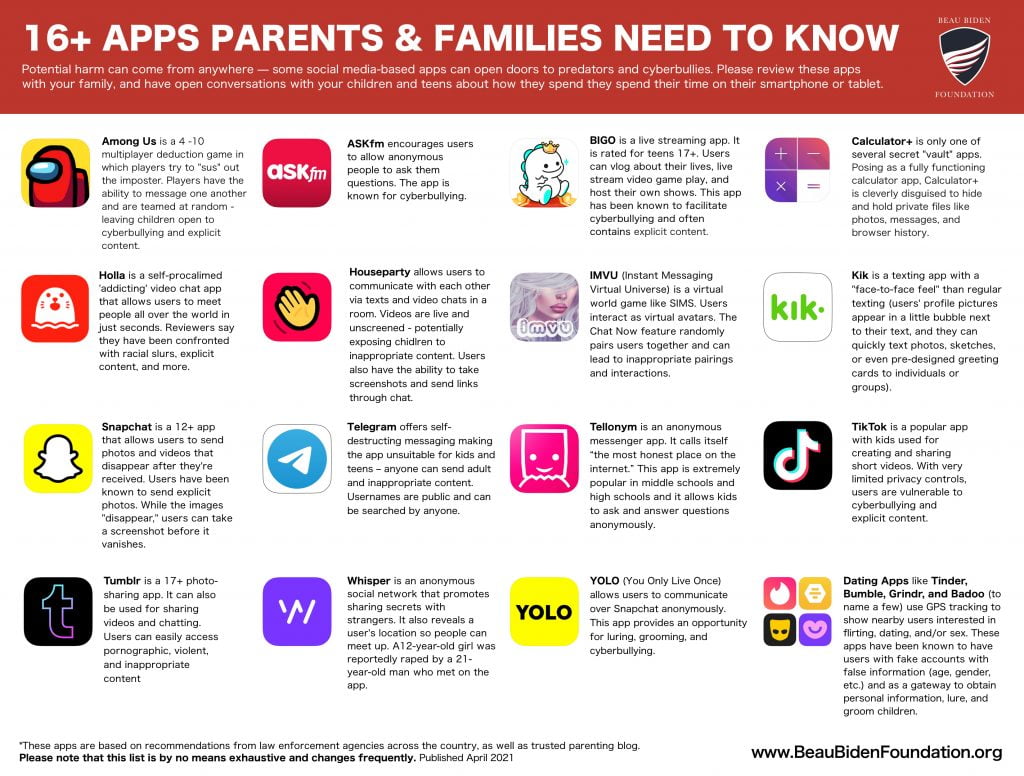I’m sure you’ve had this experience. You’re reviewing your child’s Instagram. There’s a picture of her lunch with a caption “#PizzaDay!” and one of her field hockey stick – “#OldFaithful!”
You probably ask yourself, “Who cares about pizza day? What makes this worthy of sharing?”
It’s helpful to think of the concept of oversharing in two ways. First, there’s the harmless (if incomprehensible to most parents) oversharing of the mundane details of your child’s life. But there’s a second form of oversharing, one that could have a profound impact on your child’s future.
First, personal information.
As discussed in our ebook, Seven Things You Don’t Know About Your Child’s Digital Life, children are perhaps a little too trusting of the people they meet online. Sharing where they go to school, what their interests are – these can all be data points predators use to gain a child’s trust, build connections and groom them for future abuse.
Second, like adults, children sometimes overshare their feelings and emotions online.
Sometimes it’s a cry for help, or it could be an attempt to get attention and garner sympathy (“I’ve studied for five hours – absolutely about to break down!”). Occasionally, in an attempt to push the limits and test the waters, a child could share something much worse – illegal activities, a threat, a picture of a red plastic cup on a Friday night.
These are the types of posts that can impact a child’s future in a way they may not totally understand. It seems like every August, there’s a story in on the news about a handful of teenagers who have their acceptance to college rescinded because of their digital footprint. A couple of years ago, a softball team was dismissed from the Little League World Series because of social media posts that taunted their opponent.
Talk to your children and teens about the long-term implications of everything they post. Remind them that “send is forever” and to “think before they tweet.” It’s also helpful to stress to children that schools and employers will often check an applicant’s social media profiles. Modeling good digital citizenship yourself is an important part of teaching your children good behavior.
Two final points about oversharing.
First, have a conversation with your child about location services and the geotagging
of their posts. While it may seem safe to “check-in” or geotag their location, your child is opening themself up to potential danger – unless the account is private, predators can begin to build a profile of the places your child frequents. Try this yourself – open your Instagram and search for “Dewey Beach” or another vacation spot you and your family visit. Chances are the first 10 photos are of young women posing on the beach.
Second, do your children frequently livestream? Do they upload videos to TikTok, YouTube or Vimeo? Ask your children what personal information they may be inadvertently revealing. For example, in the background of their live stream, are there posters of their favorite bands? Trophies or other knickknacks that might reveal their interests? These are all data points for predators to use when attempting to build common ground with children.

Seven Things You Don’t Know About Your Child’s Digital Life
Please click here to download our informative and FREE ebook.

16+ Apps Parents & Families Need to Know:
Potential harm can come from anywhere — some social media apps can open doors to predators. Please click here to download this list of apps and review them with your family and have open conversations with your children and teens about how they spend their time on their smartphones and tablets.

